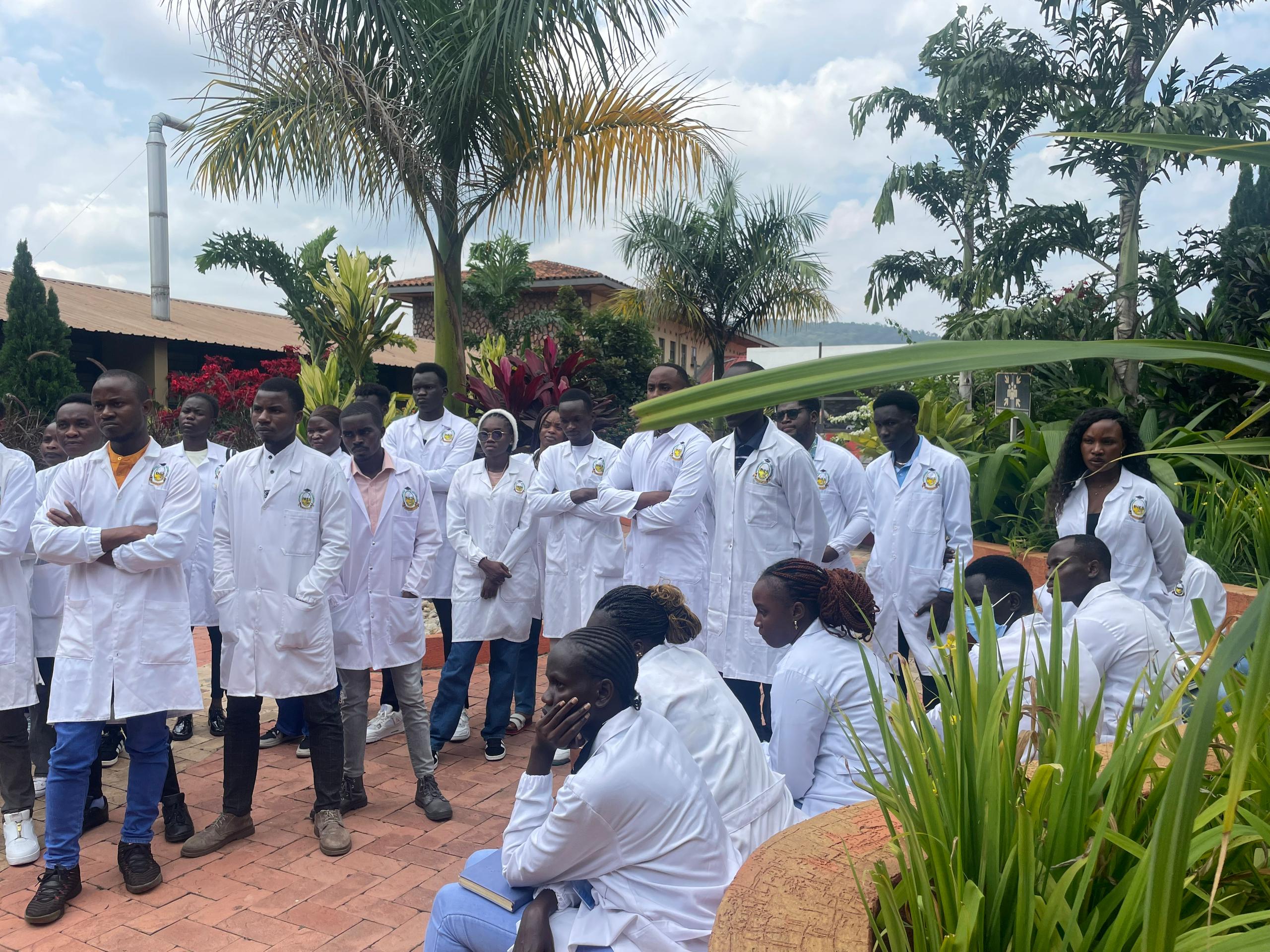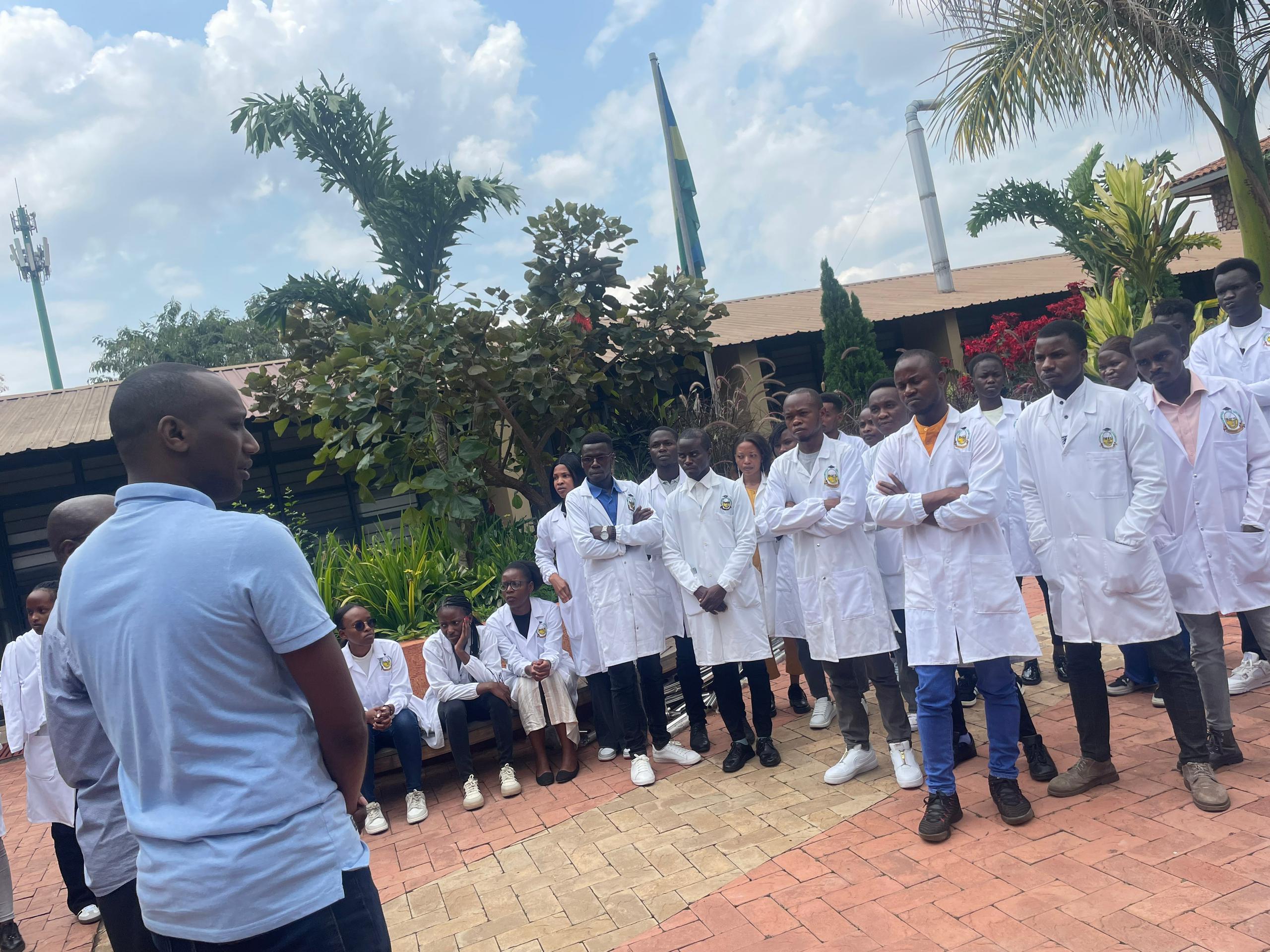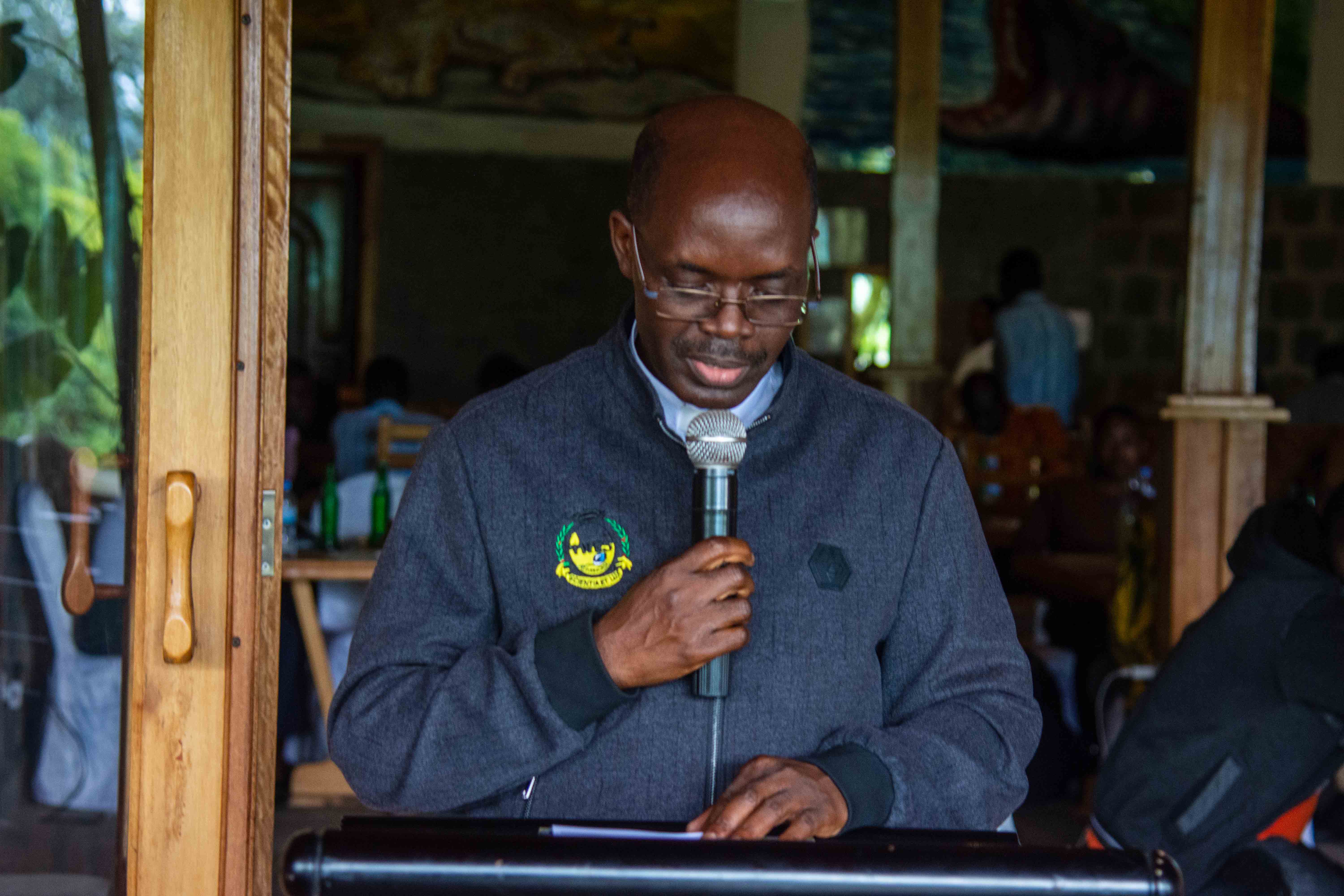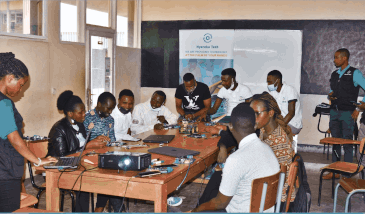INES-Ruhengeri BLS Students Gain Practical Insights through Field Visit to Rwanda Biomedical Center

From February 10-13, 2025, a group of Biomedical Laboratory Sciences (BLS) students from INES-Ruhengeri, along with their staff, conducted an enriching field visit to the Rwanda Biomedical Center's National Reference Laboratory (NRL) and Blood Transfusion Division. This initiative, made possible through the partnership between INES-Ruhengeri and the Rwanda Biomedical Center, aimed to provide students with practical exposure to advanced diagnostic techniques, quality control procedures, and blood transfusion practices in Rwanda.
The visit was designed to bridge the gap between theoretical knowledge and real-world application. During their time at the NRL, students engaged in hands-on activities and observed critical laboratory processes. They were introduced to key diagnostic techniques in molecular diagnostics, microbiology, hematology, and clinical chemistry. Experts from the NRL emphasized the importance of quality assurance and biosafety measures, demonstrating how these are integral to ensuring the reliability of diagnostic results.
At the Blood Transfusion Division, students explored the intricacies of blood donation and transfusion processes. They learned about blood donor selection, blood collection methods, the screening process for infectious diseases, and the preparation of blood components for transfusion. This exposure allowed students to gain firsthand insight into the vital role blood transfusion plays in saving lives.
This field visit has been an invaluable learning experience for INES-Ruhengeri’s BLS students, helping them to better understand the practical applications of their studies and reinforcing the value of partnerships in healthcare. The knowledge and skills acquired will undoubtedly prepare them for successful careers in biomedical laboratory sciences, while also deepening their appreciation for collaborative efforts in enhancing public health systems.
The partnership between INES-Ruhengeri and the Rwanda Biomedical Center continues to play a key role in the development of future professionals, underscoring the importance of practical exposure and teamwork in building a robust healthcare system in Rwanda.


On May 1st, 2024, INES-Ruhengeri staff gathered at the Classic Hotel to celebrate Labor Day. Vice-C…
LEARN NowINES-Ruhengeri has invited NYEREKA Tech Ltd -an external expert to conduct a one-day workshop for s…
LEARN NowOn May 17, 2024, FruiFresh, featuring Uwera Providence from INES-Ruhengeri, secured the first prize…
LEARN Now







